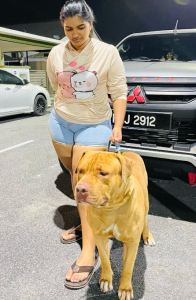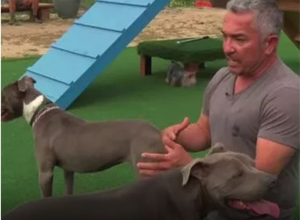
Separation Anxiety in Pit Bulls: The What’s, Why’s, and How’s
Pit bulls are known for being loyal and loving companions but can also be prone to separation anxiety. Separation anxiety is a behavioral disorder that causes dogs to experience extreme distress when separated from their owners. It can manifest in a variety of ways, including:
- Barking, whining, or howling
- Destructive behavior, such as chewing or scratching
- Pacing
- Digging
- Urinating or defecating in the house
- Attempting to escape
Separation anxiety can be a challenging condition for both dogs and their owners. It can lead to isolation, social problems, and even physical harm. If you think your pit bull may have separation anxiety, it is essential to seek professional help from a veterinarian or certified dog behaviorist.
What causes separation anxiety in pit bulls?
There is no single cause of separation anxiety in pit bulls. It is thought to be caused by a combination of factors, including:
- Genetics: Some pit bulls are more predisposed to separation anxiety than others.
- Early life experiences: Pit bulls who were separated from their mothers or littermates too early or experienced abuse or neglect are more likely to develop separation anxiety.
- Temperament: Pit bulls who are shy, anxious, or fearful are also more likely to develop separation anxiety.
- Lifestyle changes: Pit bulls who are used to being around their owners all the time may develop separation anxiety if their owners suddenly start spending more time away from home.
When to visit the vet
If you suspect your pit bull may have separation anxiety, visiting your veterinarian to rule out any underlying medical conditions is essential. Separation anxiety can sometimes be caused by medical problems such as pain, anxiety disorders, or cognitive dysfunction. Once any medical conditions have been ruled out, your veterinarian can refer you to a certified dog behaviorist for further evaluation and treatment.

How to treat separation anxiety in pit bulls
Treating separation anxiety in pit bulls typically involves a combination of behavioral modification and medication. Behavioral modification techniques can help your dog learn to cope with being alone healthily. These techniques may include:
- Desensitization and counterconditioning: Gradually expose your dog to situations that trigger separation anxiety in a safe and controlled environment. While your dog is exposed to the trigger, you will give them a positive distraction, such as a treat or praise.
- Crate training: Crates can provide a safe and secure place for your dog to stay when you are not home. However, it is essential to crate-train your dog gradually and positively.
- Exercise and mental stimulation: A tired dog is a happy dog. Make sure your pit bull is getting plenty of exercise and mental stimulation before you leave them alone.
Medication may also be used to treat separation anxiety in pit bulls. Various drugs are available, and your veterinarian will work with you to choose the best medicine for your dog’s needs.
Resources for pit bull owners with separation anxiety
There are several resources available to help pit bull owners with separation anxiety. Some of these resources include:
- Certified dog behaviorists: Certified dog behaviorists can provide personalized training and support to help you manage your dog’s separation anxiety.
- Separation anxiety support groups: Several online and in-person support groups are available for pit bull owners with separation anxiety. These groups can provide you with emotional support and resources.
- Books and articles: Several books and reports on separation anxiety in dogs are available. These resources can provide information on separation anxiety’s causes, symptoms, and treatment.
Conclusion
Separation anxiety is a severe condition, but it is treatable. If you think your pit bull may have separation anxiety, it is essential to seek professional help from a veterinarian or certified dog behaviorist. With proper treatment, your pit bull can learn to cope with being alone healthily.
Here are some additional tips for helping your pit bull with separation anxiety:
- Create a routine and stick to it as much as possible. This will help your dog know what to expect and reduce their anxiety.
- Make goodbyes and hellos low-key. Don’t make a big fuss when you leave or come home. This can make your dog’s anxiety worse.
- Leave your dog with a safe and comfortable place to stay when you are not home. This could be a crate, bed, or room in your house.
- Give your dog plenty of exercise and mental stimulation before you leave them alone. This will help them tire themselves out and reduce their anxiety.
- Reward your dog for staying calm and relaxed when you are not home. This will help them learn that being alone is a good thing.
With patience and consistency, you can help your pit bull with separation anxiety live.


